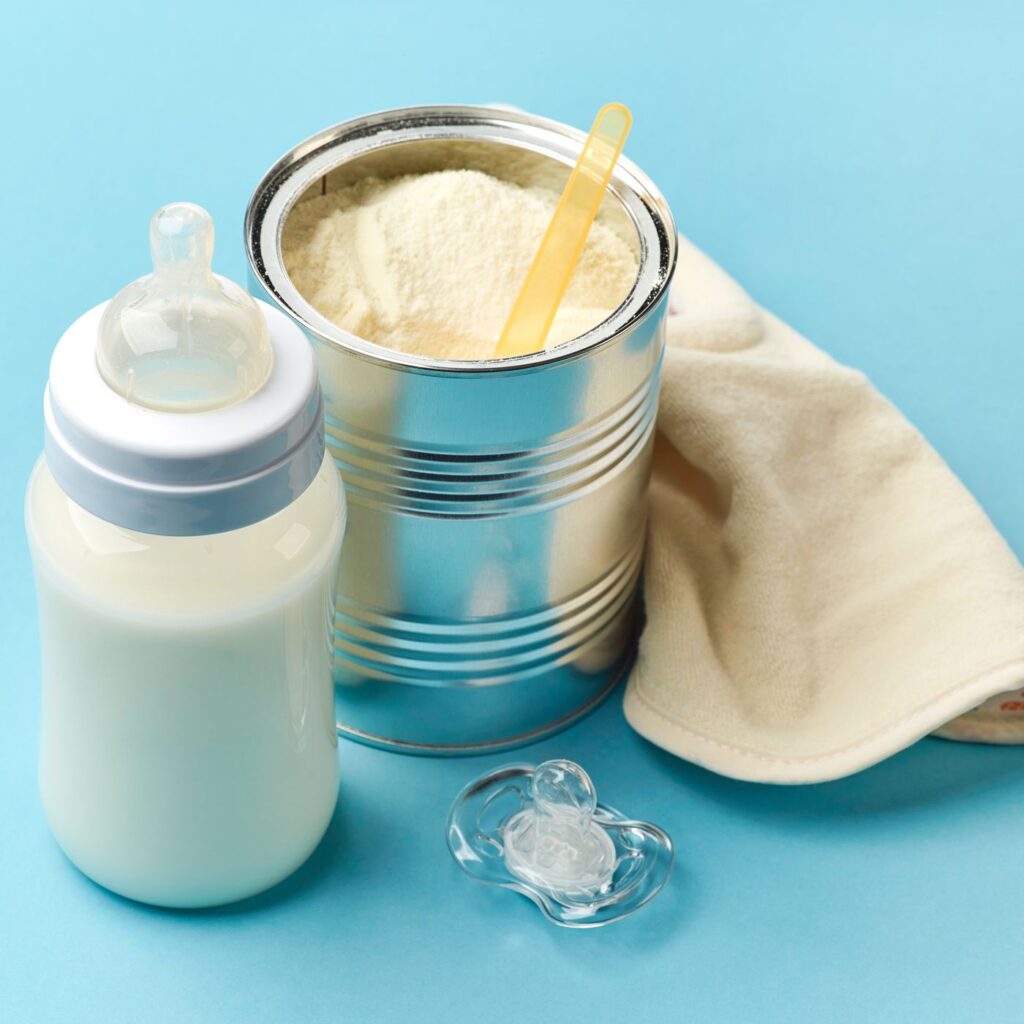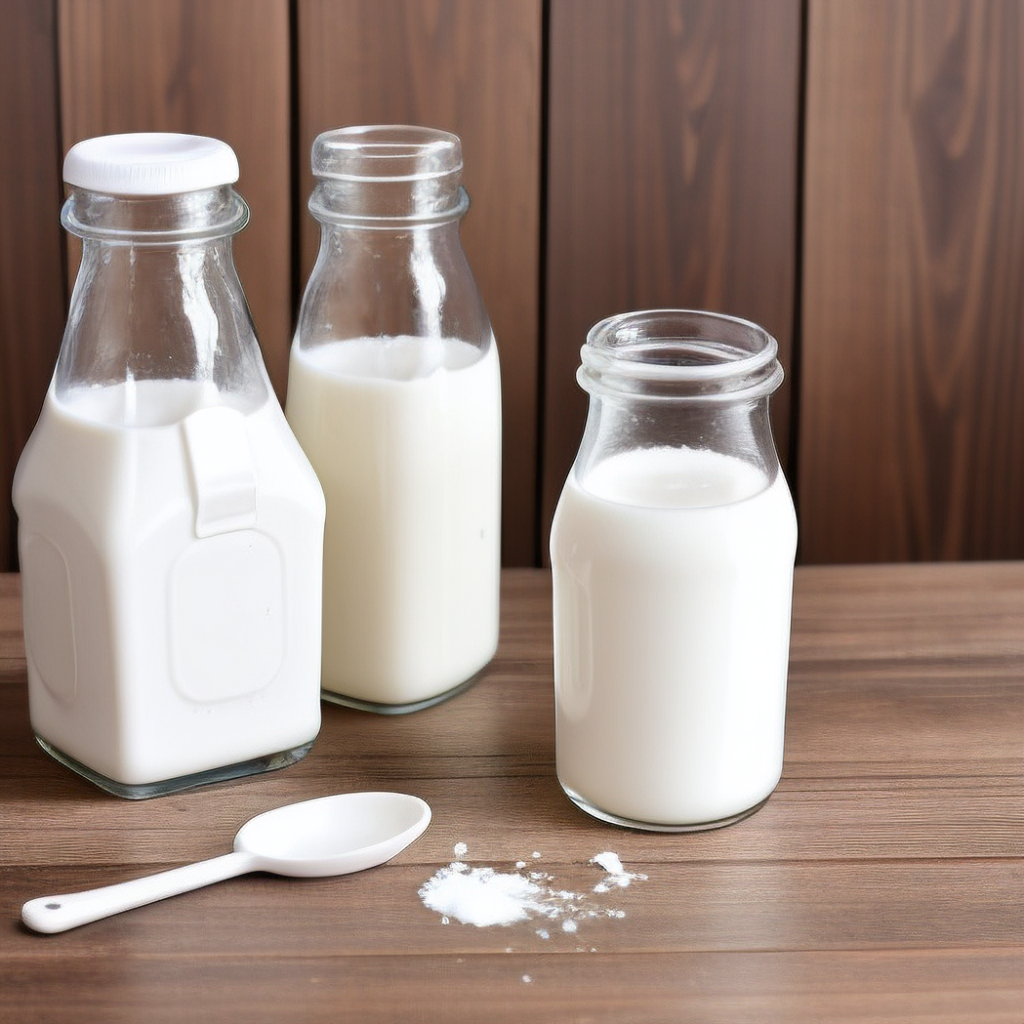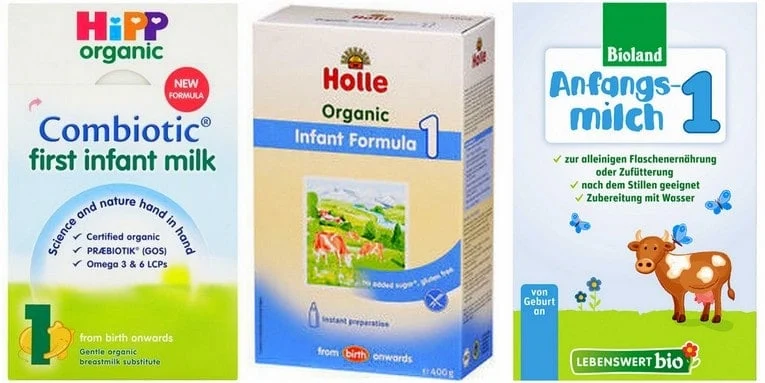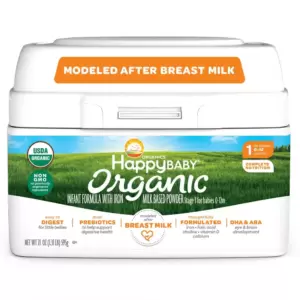As parents, we work tirelessly to provide our little one’s with optimal nourishment from birth. One of the most important decisions we face as parents is choosing what to feed our infants during those crucial first months. Baby formula has long been considered an indispensable source of nutrition for children all over the world. However, recent studies have exposed some alarming revelations regarding the ingredients contained within these formulas, sparking a widespread concerns for its safety. Parents have become concerned over this exposure to toxic substances, which could pose long-term health implications to our children’s health.
Led by scientific research, we will investigate which heavy metals and harmful ingredients are commonly found in infant formula, their sources, their contamination sources, long-term health implications for your baby, and any solutions. After our journey, you will gain the skills needed to make informed decisions regarding nutrition for your infant or toddler and ensure an ideal start in their lives.
The Dark Side of Baby Formula: Heavy Metals and Other Harmful Ingredients
Infant formula is intended to provide essential nutrition for growing babies when breastfeeding isn’t possible or is insufficient. However, heavy metals such as lead, arsenic, cadmium, and mercury have been detected in many baby formula brands. But those aren’t the only harmful ingredients found in formulas. Other potentially dangerous ingredients include: corn syrup which offers no nutritional benefit and may increase obesity risk as well as type 2 diabetes, aromatized mineral oil hydrocarbons, synthetic preservatives, and pesticide residues, all can be commonly found in formulas.
Environmental health hazard assessments have demonstrated that soy-based baby formulas are generally made with genetically modified organisms (GMOs) that are grown with larger quantities of pesticides and can lead to increased exposure to pesticide residues. Palm oil, another component commonly found in baby formulas, has also been linked with reduced calcium absorption and diminished bone mineralization among infants.
Given the potential health risks posed by harmful ingredients in baby formula, parents, caregivers, and healthcare professionals must be well informed of this issue and take necessary precautions to ensure infants get a nutritious start to life. In the following sections, we will examine what harmful ingredients are commonly found in baby formula, their potential implications on health.
List of Ingredients to Avoid in Baby Formula
Sugar Vs. High Fructose Corn Syrup: While sugar is a natural sweetener, its consumption should be limited due to potential adverse health consequences. On the other hand, corn syrup should be entirely avoided due to its harmful health implications.
Aromatic Mineral Oil Hydrocarbons (MOAH): MOAHs may contain carcinogenic components, so to protect infants from potential risks, they should be limited in baby formula products.
Synthetic Preservatives: Infants should avoid exposure to artificial preservatives like parabens and sodium benzoate, as these can lead to allergic reactions and health concerns in infants.
Soy-Based Baby Formula: Soy formulas may contain genetically modified organisms (GMOs) and heavy pesticide residues that could harm babies.
Palm Oil: Palm oil has been linked with reduced calcium absorption and bone mineralization among infants. Furthermore, production has raised environmental concerns regarding deforestation and habitat loss.
Genetically Modified Organisms (GMOs): GMOs have become the subject of much debate regarding potential long-term health impacts and often contain higher pesticide residue concentrations than non-GMO counterparts.
Harmful Vegetable Oils: Some vegetable oils, mainly those rich in omega-6 fatty acids and hydrogenated oils, have been linked with inflammation and other health concerns in infants.

Sunflower Oil: Although sunflower oil provides omega-6 fatty acids, infants may not benefit from taking too much. Too much omega-6 to omega-3 ratio could result in an imbalance.
Rice Syrup: Rice syrup, an increasingly popular sweetener used in infant formula, has been linked with high concentrations of arsenic, an extremely toxic heavy metal.
Carrageenan: Derived from seaweed, carrageenan is used as a thickener in some baby formulas; however, recent research suggests it could contribute to digestive issues and inflammation if consumed regularly.
Artificial Sweeteners: Substances such as sucralose, aspartame, and acesulfame potassium may adversely impact gut health and metabolism; it’s best to steer clear of baby formulas containing artificial sweeteners.
Artificial Colors: Synthetic food dyes have been linked with allergies and hyperactivity among some children.
Maltodextrin: Maltodextrin is an artificial carb made from corn, rice, or potatoes and can cause drastic increases in blood sugar levels.
Soy Protein Isolate: Even highly processed soy protein isolate may contain trace amounts of hexane, which is known to be a neurotoxin.
Partially Hydrogenated Oils: These oils contain trans fats that can contribute to inflammation and other health concerns.
Canola Oil: Although it provides essential omega-3 fatty acids, its production often involves extensive processing that exposes it to GMOs and pesticide residue.
DHA and ARA extract: DHA and ARA are essential fatty acids for brain development; however, some baby formulas contain sources extracted with hexane, a neurotoxin.
Sodium Caseinate: This highly processed milk protein may cause infant digestive distress.
Soy Lecithin: This emulsifier, often derived from GMO soy, can cause digestive issues in infants.

List of Baby Formula with Heavy Metals
Sprout Foods Organic Baby Food: Recently, there have been concerns regarding heavy metals such as lead, arsenic, and cadmium in their organic baby food products. Although the company has pledged to improve ingredient sourcing and product testing measures, it remains essential for customers to stay mindful when selecting their baby food products.
Enfamil NeuroPro Infant Formula: According to research conducted by the Clean Label Project, Enfamil’s NeuroPro Infant Formula contained detectable levels of heavy metals like lead and arsenic.
Similac Advance Infant Formula: One of many products the Clean Label Project investigated, which contained heavy metals like lead, arsenic, and cadmium.
Gerber Good Start Gentle Infant Formula: Studies have identified detectable levels of heavy metals such as lead and arsenic in this formula from Gerber.
Plum Organics Infant Formula: Plum Organics has recently been scrutinized due to heavy metals in their infant formula. As with Sprout Foods, they have pledged to improve ingredient sourcing and testing procedures, but parents should remain wary.
Parent’s Choice Infant Formula: Parent’s Choice infant formula products sold by Walmart were recently found to contain detectable levels of heavy metals.
Earth’s Best Organic Infant Formula: Earth’s Best, a famous organic brand, recently faced accusations that their infant formula products contained arsenic. However, Earth’s Best has since commented that they are committed to stringent quality standards as part of its quality control initiatives.
Happy Baby Organic Infant Formula: Has been identified with detectable levels of heavy metals, including lead and arsenic, by The Clean Label Project.
Nature’s One Baby’s Only Organic Formula: Due to recent concerns regarding arsenic contamination in their Baby’s Only Organic Formula, Nature’s One has implemented stricter quality control measures in response to such allegations.
Kabrita Goat Milk Formula: According to the Clean Label Project, Kabrita’s Goat Milk Formula has been found to contain detectable levels of heavy metals such as lead and arsenic.
Heavy metals in these baby formula do not necessarily indicate ongoing contamination; therefore, it’s essential to remain informed and conduct rigorous research when selecting one for your child. When selecting a baby formula, it may also be wise to consult a pediatrician or healthcare professional for personalized recommendations.

List of Safest Baby Formula Without Heavy Metals
Holle Organic Infant Formula: Holle has been producing organic baby food since 1933, and their infant formula features high-quality organic ingredients like Demeter-certified biodynamic milk. They abide by European Union regulations for organic baby food production to guarantee they stay free from harmful chemicals or heavy metals; their formula also provides essential omega-3 and omega-6 fatty acid nutrition without synthetic additives or preservatives.
HiPP Organic Combiotic Infant Formula: HiPP is an esteemed German company with over five decades of experience creating organic baby food. Their Combiotic infant formula, made from organic skim milk and essential nutrients, prebiotics, and probiotics that aid healthy digestion and immune system development – as well as stringent quality controls which ensure their products are free of heavy metals or harmful substances. Which has made them one of the top sellers on the market.
Loulouka Organic Infant Formula: Loulouka is a Swiss company dedicated to crafting high-quality organic infant formula from whole goat’s milk. Their products provide essential DHA and ARA for supporting healthy growth and development, meeting strict European organic standards and remain free from heavy metals or harmful ingredients.
Lebenswert Bio Organic Infant Formula: Lebenswert Bio is another German brand offering organic infant formula made with only premium-grade ingredients sourced from biodynamic and organic farms, boasting all necessary vitamins, minerals, essential fatty acids without artificial additives, GMOs, or heavy metals. Their production adheres to stringent quality and sustainability standards in baby food manufacturing.
Kendamil Organic Infant Formula: Kendamil, a British company, manufactures organic infant formula from locally sourced whole milk from pasture-fed cows. Their formula offers essential omega-3 fatty acids, prebiotics, and vitamins without artificial additives or preservatives; their dedication to using high-quality, sustainable ingredients ensures their products are free from heavy metals or harmful substances.
Baby’s Only Organic Formula by Nature’s One: Made v=by an American company producing premium organic infant formula. Their Baby’s Only Organic Formula contains non-GMO ingredients and adheres to USDA Organic standards, providing essential nutrients such as DHA, ARA, and Choline from plant sources. Furthermore, Nature’s One employs stringent testing procedures and quality control measures to guarantee its products are free from heavy metals or harmful substances.
Earth’s Best Organic Infant Formula: Earth’s Best, an American company, offers organic infant formula made with only high-grade ingredients and free from artificial additives, preservatives, or heavy metals. Their formula contains essential fatty acids (DHA and ARA), non-GMO sources, and no preservatives or heavy metals – making their products highly sustainable concerning both safety and quality standards.
Happy Baby Organic Infant Formula by Happy Family: Based out of the US, Happy Family produces organic baby food products such as infant formula. Their Happy Baby Organic Infant Formula comprises organic non-GMO ingredients free from artificial additives or preservatives, providing essential DHA, ARA, choline, and prebiotics to support digestive health. Furthermore, Happy Family adheres to stringent quality control measures which guarantee their products do not contain heavy metals or harmful substances.
Note that the absence from this list does not indicate an unsafe product containing heavy metals. There are many other brands and products prioritize safety, quality, and sustainability.

European Baby Formula vs. American
Understanding the regulatory standards imposed upon European and American baby formula production can provide parents with crucial insight when deciding on their child’s best nutritional care. One significant distinction lies in their respective regulations, with European regulations often being more stringent than their American counterparts.
One notable characteristic of European regulations is their lower allowable limits for contaminants like heavy metals, pesticides, and other harmful substances in baby formula. The European Union (EU) has implemented stringent regulations that prioritize infant nutrition safety by minimizing risks such as harmful ingredients sneaking their way into the formula.
Conversely, the United States lacks stringent regulations regarding certain ingredients and contaminants that could lead to potentially harmful substances in American baby formula. American regulations allow synthetic additives like corn syrup and soybean oil – both controversial ingredients with potential adverse health impacts that experts and scientists have widely criticized. Corn syrup have been linked with higher sugar consumption as well as possible contributions towards childhood obesity. While soybean oil, another ingredient often seen in American products, has been linked to inflammation as well as other issues.
Additionally, European regulations favor organic and non-GMO ingredients less likely to contain harmful substances. Many European brands such as Holle, HiPP, and Lebenswert source their ingredients from organic farms that meet strict environmental and quality standards. These farms prioritize sustainable practices while limiting chemical pesticides and fertilizers used. This helps further minimize risks related to harmful ingredients found in baby formula.
However, it is crucial to recognize that American brands like Nature’s One, Earth’s Best, and Happy Baby prioritize organic, non-GMO ingredients while meeting stringent quality and safety standards. They prioritize sustainable farming practices and rigorous testing procedures to guarantee their products do not contain harmful materials, including heavy metals.
While both European and American baby formulas can produce quality products, differing regulatory standards may affect their overall safety and quality.

Is Organic Baby Formula Better?
Organic baby formula is made with ingredients sourced from farms following strict organic farming practices emphasizing sustainability, soil health, and minimal chemical pesticides and fertilizers usage. These methods reduce pesticide residue risks in organic products. However, even organic ingredients can still be contaminated by heavy metals such as arsenic, lead, and cadmium that can enter through soil or water into our food chain.
One example of this is that organic rice may still contain trace amounts of arsenic if grown in contaminated soil. Research indicates organic baby formula can still have high concentrations of heavy metals. Keeping this concern in perspective and considering its advantages over are important.
Want to learn more about organic foods? Check out this short youtube video.
Despite its potential downsides, organic baby formula offers several advantages over conventional alternatives. Organic formulas tend to contain fewer synthetic additives like artificial preservatives and sweeteners which could have negative health impacts. Additionally, they prioritize non-GMO ingredients in their formulation, thus avoiding genetically modified organisms (GMOs) which could introduce potentially harmful substances into it.
Organic baby formula can be a good option for infants and children. But parents need to carefully evaluate various factors related to ingredient sourcing, manufacturing processes, and regulatory standards compliance before selecting their brand of choice. Look for companies that are transparent on how they source their ingredient and that conduct rigorous testing on their products for harmful substances such as heavy metals.
Though organic baby formula may have potential issues, its advantages often outweigh them. By choosing organic, parents can provide their children with healthier alternatives than the conventional options and by selecting brands with high quality and safety standards they can greatly diminish the risk of any unwanted harmful ingredients.
Final Thought
Navigating the complex world of baby food can be difficult for parents, particularly with rising concerns over harmful ingredients in baby formula. We’ve explored different sources of nutrition throughout this blog post; each has advantages and drawbacks that must be carefully considered when making the best choice for your infant’s unique circumstances and needs.
Breast milk is widely considered the ideal source of nutrition for infants, providing essential vitamins, antibodies, and hormones necessary for healthy development and growth. When possible, breastfeeding should always be chosen first as the source of infant nutrition; however, we understand that sometimes this option may not be available due to medical issues, insufficient milk supply, or personal choice.
When breastfeeding is impossible, selecting the cleanest and most nutritious organic formula is often the next best solution. Organic formulas adhere to stringent regulations which ensure they are free from pesticides, GMOs, and other potentially dangerous ingredients that could compromise a baby’s health. When selecting such a product, it is vitally important that you and your pediatrician discuss which brand may meet the nutritional requirements of your infant best.
Parenthood can be filled with tough decisions, with nutrition being one of the most crucial. By arming yourself with knowledge about possible hazards associated with specific formulas and exploring other sources of infant nutrition, you can navigate this complex terrain with greater confidence. Your dedication in selecting healthy food for your little one will lay the groundwork for lifelong health and happiness. So take on this challenge with pride, making informed choices that reflect you and your child’s special relationship.

